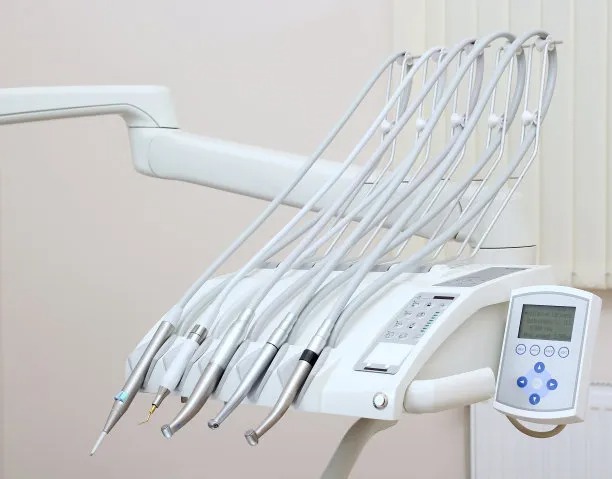Summary: Dental filling procedures are essential for restoring the function and aesthetics of teeth affected by decay or damage. To ensure safety and efficacy, several guidelines must be followed. This article outlines four critical areas to focus on, including choosing the right dental professional, preparing adequately for the procedure, understanding the materials used for fillings, and following aftercare protocols post-procedure. Each of these aspects highlights the importance of informed decision-making, effective communication with the dentist, and adherence to guidelines that can lead to optimal outcomes. By understanding these essential guidelines, patients can feel more empowered and confident throughout their dental filling experience.
1. Selecting the Right Dental Professional

Choosing a qualified and experienced dental professional is the first step toward ensuring a safe and effective filling procedure. Researching potential dentists, reading reviews, and seeking recommendations can help in making an informed choice. It’s crucial to consider their qualifications, specialized training, and how comfortable you feel during initial consultations.
Another aspect to consider is the dentists ability to explain the procedure clearly. A good dentist will take time to discuss your concerns, answer questions, and outline their approach to treatment. This conversation is vital as it establishes a trusting relationship and helps you feel more relaxed during the procedure.
Lastly, check whether the dental practice adheres to stringent hygiene and safety regulations. Ensure that the facility maintains cleanliness and follows proper protocols for sterilization and infection control. This attention to safety can significantly reduce the risks associated with dental treatments.
2. Preparing for Your Dental Appointment
Preparation for your dental filling appointment can significantly impact the overall experience. First, ensure that you have filled out all necessary paperwork concerning your medical and dental history. This information will assist your dentist in tailoring the procedure to your specific needs.
Additionally, consider discussing any allergies or sensitivities to medications or dental materials with your dentist before the appointment. Transparency is vital to avoid any adverse reactions during the filling procedure, and your dentist will appreciate your honesty regarding your health.
Finally, you might want to arrange for transportation if you plan to receive sedation during the procedure. Some patients may feel groggy post-treatment, and having someone to drive you home can enhance your comfort and safety after the appointment.
3. Understanding Filling Materials and Techniques
Different materials are used for dental fillings, including amalgam, composite resins, and glass ionomer. Understanding the advantages and disadvantages of each type can help you make educated decisions. Amalgam fillings are durable and cost-effective, while composite resins provide better aesthetics, as they can be matched to the natural color of your teeth.
Your dentist will recommend materials based on several factors, including the location of the cavity, your dental health, and personal preferences. Make sure to discuss these options openly and understand the implications of each choice fully.
Moreover, ask your dentist about the techniques used, such as the drill or laser methods. Knowing how the filling will be placed can alleviate anxiety and help you enjoy a more pleasant experience during the procedure.
4. Aftercare Guidelines for Better Healing
Post-procedure care is crucial for ensuring that your dental fillings heal properly and remain effective. One of the primary aftercare instructions is to avoid chewing hard or sticky foods for at least 24 hours following the treatment. This precaution helps to prevent damaging the new filling.
Additionally, maintaining excellent oral hygiene is vital. Continue to brush and floss as usual but do so carefully around the filled area. Regular rinsing with warm saltwater can also foster healing and reduce any discomfort you may feel.
If you experience persistent pain or notice any changes to the filling, contact your dentist immediately. Early intervention is key to addressing any issues and preventing further complications.
Summary:
In conclusion, dental filling procedures are essential for maintaining oral health, and following essential guidelines can enhance safety and efficacy. Selecting the right dental professional, preparing adequately for the appointment, understanding filling materials, and adhering to aftercare instructions are all crucial steps for a positive experience. By adopting these practices, patients can achieve successful outcomes and enjoy long-lasting dental restorations.
This article is compiled by Vickong Dental and the content is for reference only.
Vickong Dental
Vickong Dental is a large medical group established in Hong Kong in 2008 by professors from well-known medical universities in Guangdong and Hong Kong, as well as medical doctors from key national '985' universities (including Master's supervisors and senior professors). The chain of branches brings together expert dentists with PhDs and Master's degrees from Hong Kong and Mainland China, committed to providing high-quality dental treatment.
"Vickong Dental Practices the University Motto of 'Healing and Serving Society,' with a Stable Operation for Sixteen Years. It Has Been honored with Hong Kong Enterprise Leaders's Choice,' and is a Global Trusted Implant Center for the Nobel Implant System. Recommended by Hong Kong Metro Broadcast and Guangdong Television, it Serves Customers from Over Thirty Countries and Regions, Gaining the Trust and Favor of Citizens from the Guangdong-Hong Kong-Macau Greater Bay Area and Surrounding Cities.

Thousands of customers' unanimous praise
The most recognized and highly recommended dental service by customers in the Guangdong-Hong Kong-Macau Greater Bay Area
We Ensure You Receive Detailed Care and Attention Here
Hong Kong standards, Shenzhen prices, Your Trusted English-speaking dentists

Vickong Dental Medical-Grade Instrument Disinfection Process
Vickong Dental Medical-Grade Instrument Disinfection Process

Vickong Dental Chain: A Warm and Comfortable Environment for Treatment






Appointment Hours

Q&A
Why choose Vickong Dental?
Vickong Dental practices the university motto 「Medicine to Benefit Society」, with each branch bringing together highly qualified dentists with doctoral and master’s degrees from Hong Kong and the Mainland, and has maintained seventeen years of steady operation。Recipient of 「2024 Hong Kong Enterprise Leaders Brand」, 「2025 Hong Kong Enterprise Leaders Brand」, a Nobel Biocare Global Trusted Implant Center, and a brand recommended by Metro Radio Hong Kong and Guangdong TV。
To date, we have served customers from more than thirty countries and regions,earning exceptionally high word-of-mouth recognition and trusted recommendations from residents across the Guangdong-Hong Kong-Macao Greater Bay Area and surrounding cities
We have eight major branches in Zhuhai、Shenzhen,and a consultation and service assurance center in Hong Kong,so you can book a free consultation at any time for any questions,which is very reassuring.
If I do not accept the quotation after the CT scan, will I be charged??
No! As long as the actual treatment has not started, you will not be charged any fees.
Will there be any additional charges during the treatment process?
No, there won’t be any additional charges. Before treatment begins, we will clearly explain the treatment plan and its corresponding fees. Only after the patient agrees and signs the consent form will we proceed with the dental service.
Can I pay in Hong Kong dollars?
Yes. Vickong Dental accepts payment in Hong Kong dollars. The amount will be converted based on the exchange rate of the day, and the applicable rate will be clearly communicated to you in advance.
Can I reschedule my appointment at any time?
Yes. Please contact us via **WeChat** or **WhatsApp** as early as possible, providing your original appointment time and details, along with your preferred new date and time slot for rescheduling.













